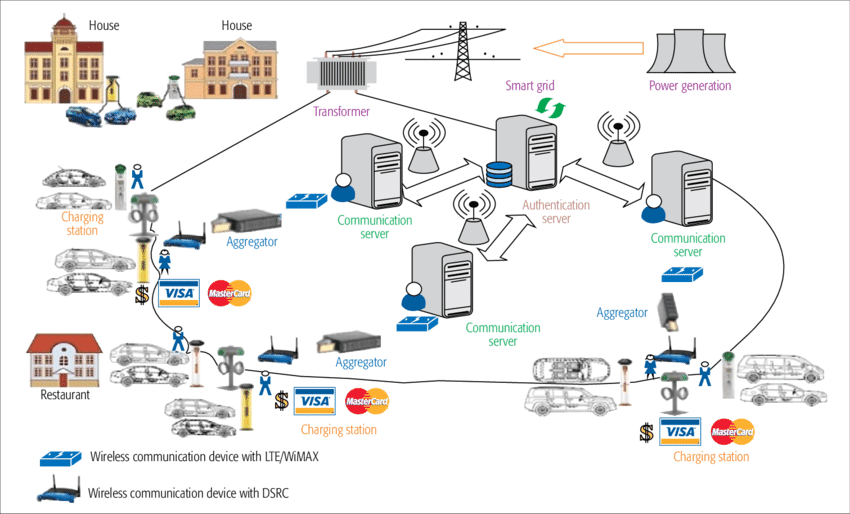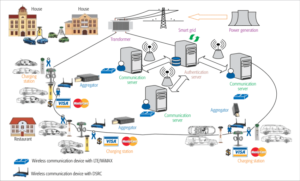With the growing popularity of electric vehicles (EVs) as a cleaner and greener alternative to traditional internal combustion engine vehicles, the demand for efficient and intelligent charging solutions has intensified. Smart charging, also known as intelligent charging, represents a fundamental concept that aims to optimize the charging process of EVs by considering factors like grid load, renewable energy integration, and user preferences. In this article, we will delve into the concept of smart charging, its benefits, and its potential to revolutionize the electric mobility landscape.
What is Smart Charging?
Smart charging refers to an advanced charging management system that uses information technology and communication capabilities to optimize the charging process of electric vehicles. Unlike conventional charging methods, which rely on a simple plug-and-charge approach, smart charging takes into account various dynamic factors to make charging more efficient, cost-effective, and environmentally friendly.
Key Components of Smart Charging
1 Real-Time Communication – Smart charging relies on real-time communication between the EV, the charging station, and the energy grid. This communication enables data exchange and coordination to adjust the charging rate and schedule based on changing conditions.
2 Grid Integration – Smart charging considers the state of the power grid, especially during peak hours. By adjusting charging times to avoid grid stress, smart charging helps balance electricity demand and supply, contributing to grid stability.
3 Renewable Energy Integration – Smart charging systems can optimize charging schedules to coincide with periods of high renewable energy production, such as sunny or windy days. This integration increases the share of green energy used to charge EVs, reducing carbon emissions even further.
4 User Preferences and Cost Optimization – Smart charging solutions can be tailored to accommodate user preferences, such as charging during specific hours or ensuring the vehicle is adequately charged by a particular time. Additionally, smart charging can help manage electricity costs by charging when rates are lowest.
Benefits of Smart Charging
1 Grid Balancing and Stability – By distributing charging loads more evenly throughout the day, smart charging reduces the risk of grid overloads during peak hours, thereby enhancing grid stability and efficiency.
2 Cost Savings – Smart charging allows EV owners to take advantage of time-of-use electricity rates, ensuring charging occurs during off-peak hours when electricity costs are lower.
3 Environmental Impact – Optimizing EV charging with renewable energy integration minimizes reliance on fossil fuels, further reducing greenhouse gas emissions and supporting sustainable transportation.
4 Improved Charging Infrastructure Planning – Smart charging data can be analyzed to better plan the deployment of charging infrastructure, ensuring optimal locations and capacity to meet future EV demand.
5 Grid Services – Smart charging systems can provide grid services, such as demand response and frequency regulation, helping utilities manage electricity supply and demand effectively.
Challenges and Considerations
1 Standardization – Implementing smart charging requires standardization and interoperability between various charging stations and EVs to ensure seamless communication.
2 Data Security and Privacy – Handling real-time data exchange requires robust security measures to protect user information and prevent unauthorized access.
3 Infrastructure and Investment – Scaling up smart charging infrastructure will require substantial investment in charging stations and network upgrades.
4 User Awareness – Promoting awareness and understanding among EV owners about the benefits of smart charging is crucial for its widespread adoption.
Conclusion
Smart charging represents a vital step towards sustainable electric mobility. By optimizing charging processes, integrating renewable energy, and supporting grid stability, smart charging systems offer a host of benefits to EV owners, utilities, and the environment. As the technology continues to evolve and gain traction, it will play a pivotal role in shaping a cleaner, more efficient, and future-ready transportation ecosystem. Governments, industries, and stakeholders must collaborate to promote the adoption of smart charging and accelerate the transition towards a sustainable energy future.

